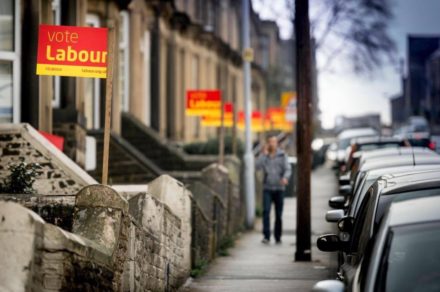
Janet Daby won the Lewisham East selection contest by a landslide. Most didn’t see this coming: the Left control the NEC, which controls the shortlist in a by-election, so the Corbynsceptic CLP executive expected a “stitch-up”. Last week, I wrote that the outcome of the selection contest would tell us something about whether Jeremy Corbyn’s control over party structures gets results. We have our answer: not always. What happened?
Let’s start with a quick acknowledgement that there is some debate over whether this even is a Corbynite defeat. Yes, Daby voted for Corbyn twice, and that Corbynsceptic groups have resorted to organising for a Corbyn supporter shows they’ve won this battle but lost the war, say the Left. But Daby did promise to defy the leadership’s position on Brexit if selected, and Owen Jones says only two of the three who voted for Corbyn were “identified as being on the Labour left” (that’s Sakina Sheikh and Claudia Webbe, but not Daby). The Lewisham deputy mayor has been described to me as “an Angela Rayner”: a community-minded politician who is Corbyn-aligned, but not quite Corbynite. By raising the bar for who qualifies as “on the Left”, Momentum and Unite set their own targets.
The media is drawing attention primarily to Daby’s Brexit stance, which adds to the growing pressure exerted by MPs and members on the leadership to soften its position. It’s true that Lewisham East is a heavily Remain CLP, and replacing Heidi Alexander’s pro-EU rebelliousness like-for-like had wide appeal. It is clear, too, that Sheikh’s campaign took the bait as Daby’s operation hoped they would and revealed a position on Twitter that was perhaps too hostile to Remainer members. But neither Labour First nor Momentum think Brexit was the most important factor in this selection.
Owen Jones and Matt Pound, the Labour First organiser behind Daby’s campaign strategy, both agree that the crucial determinant was the CLP executive and make-up of active members. The bottom line: Corbynsceptics turn up to meetings in Lewisham East. Owen Jones says that’s because “politically hostile local party veterans” discourage new, left-wing members from attending. It can’t help that the Left is badly divided in Lewisham, with fraught local Momentum meetings and the Alliance of Workers’ Liberty splitting off. The AWL say those who pushed them out of Momentum are Stalinists. Of course the AWL is divided too, between older academic Trotskyists and younger activists (an offshoot group for the latter, Lewisham East Labour Left, has formed).
The AWL’s base is in Deptford, not East, however, which means these splits were less of a feature in the by-election. More significant may be that many of those newer members who voted for Corbyn don’t attend local meetings, and don’t particularly want to. It’s one thing joining up to vote for a leader, even do a bit of campaigning for him, but getting involved in the local party or a complex inter-factional selection battle is a bigger ask.
Heidi Alexander’s resignation could have come as a slap in the face for CLP chair Ian McKenzie, who has built up “networks of moderates” (as they put it) in the CLP for 20 odd years. But his hard work paid off last week. This allowed Matt Pound to collect highly accurate data and get the right people to turn out to the selection meeting.
The CLP control factor isn’t particularly significant for the party more broadly – although it does encourage Corbynsceptic Labour members to stay in and fight their corner on a local level. In the long term though, this selection is a warning to the Left. While votes for Daby far outnumber the combined votes won by her opponents, it didn’t help that those backing Sheikh and Webbe were in conflict. If they can’t mend fences after this defeat, there’s trouble ahead.




More from LabourList
Which ministers have done the most and fewest broadcast rounds in year one?
‘Welfare reforms still mean a climate of fear. Changes are too little, too late’
Welfare bill: Which MPs are still voting against reforms?